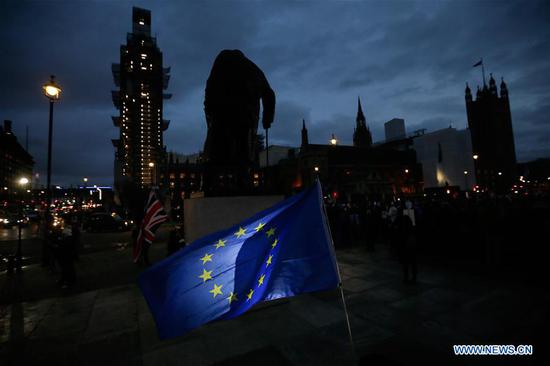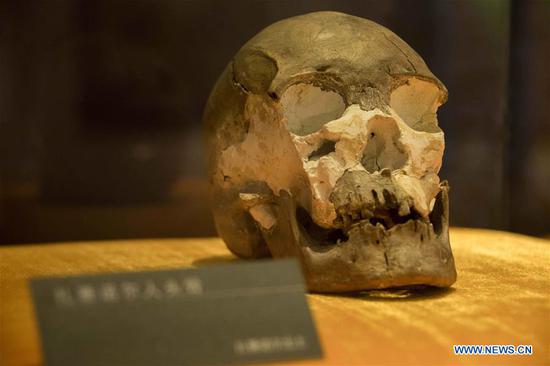
EU and UK flags are seen outside the Houses of Parliament, in front of a statue of Winston Churchill, in London, Britain on Jan. 15. 2019. The British parliament on Tuesday rejected overwhelmingly the Brexit deal, further complicating the country's historic exit from the European Union (EU). (Xinhua/Tim Ireland)
The British parliament on Tuesday rejected overwhelmingly the Brexit deal, further complicating the country's historic exit from the European Union (EU).
Members of Parliament (MPs) voted 432 to 202 against the deal reached between the British government and the EU after a five-day debate, creating the loss that is said to be the biggest defeat for a British government since 1920s.
British Prime Minister Theresa May has three sitting days to return to parliament with a "Plan B".
Britain is due to leave the EU on March 29.
"Every day that passes without this issue being resolved means more uncertainty, more bitterness and more rancour," said May reacting to the huge government loss.
Labor leader Jeremy Corbyn tabled a motion of no confidence in the government following the deal defeat. The motion will be debated in the Commons Wednesday.
Dr. Alan Wager, research associate at The UK in a Changing Europe at King's College London, told Xinhua after the vote that the defeat, larger than most expected, has led the country into "completely unknown territories."
"It seems almost certain that her (May's) deal which she has spent the last two and a half years negotiating is now dead in the water," he said.
Wager believed that a "no-deal Brexit", which will have catastrophic consequences, has become more likely following the vote.
Before the main vote, MPs voted on an amendment by Conservative MP John Baron, which was designed to give the British government the right to terminate the Northern Ireland backstop measure without the agreement of the EU. It was defeated by 600 votes to 24.


















































